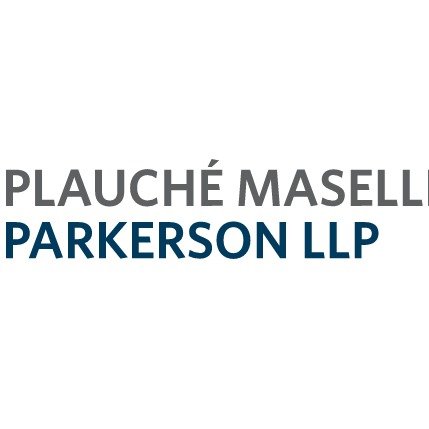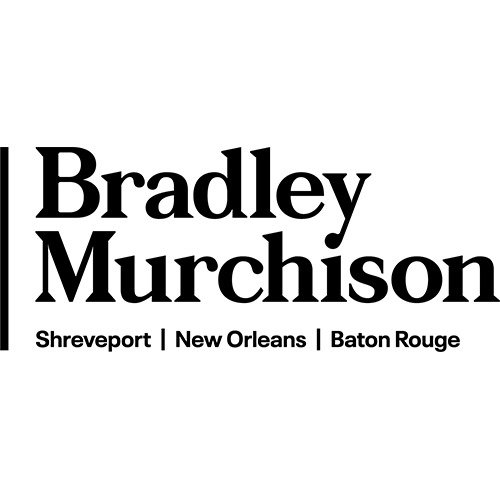Best Conveyancing Lawyers in New Orleans
Share your needs with us, get contacted by law firms.
Free. Takes 2 min.
Free Guide to Hiring a Real Estate Lawyer
List of the best lawyers in New Orleans, United States
About Conveyancing Law in New Orleans, United States
Conveyancing is the legal process of transferring ownership of real property from one party to another. In New Orleans, as in the rest of Louisiana, conveyancing has unique characteristics compared to other states due to the state's use of civil law, which originates from the French and Spanish legal traditions. The process involves various steps such as drafting and reviewing contracts, conducting title searches, handling property taxes, and preparing legal documents for recordation. Careful legal guidance ensures that property transfers are valid and enforceable, while protecting the rights of both buyers and sellers.
Why You May Need a Lawyer
There are several situations in conveyancing where the expertise of a lawyer becomes invaluable:
- Title reviews: Ensuring the property has a clear and marketable title with no liens or encumbrances.
- Preparing legal documents: Drafting or reviewing purchase agreements, sale deeds, and other required paperwork.
- Resolving disputes: Addressing disputes over boundaries, ownership, succession, or other property related conflicts.
- Succession and inheritance: Navigating property transfers when the owner has passed away.
- Handling complex transactions: Managing sales involving heir property, foreclosures, or commercial real estate.
- Compliance with local law: Making sure all steps comply with Louisiana civil law and New Orleans city regulations.
Local Laws Overview
Louisiana, including New Orleans, operates under a civil law system that is distinct from the common law system used in other states. Some key aspects relevant to conveyancing are:
- Public Records System: All real estate transactions must be recorded with the local clerk of court to be effective against third parties.
- Act of Sale: Property transfers typically require a written and notarized act of sale or deed.
- Abstract of Title: Abstracts must trace the ownership of the property back a specific number of years, and legal experts must identify and resolve any issues.
- Usufruct and Naked Ownership: Louisiana law distinguishes between full ownership and these divided property rights, which can affect conveyancing.
- Inheritance (Succession): Special rules exist for the transfer of inherited properties.
- Homestead Exemption: State laws provide property tax relief to qualifying homeowners, which can impact the sale or transfer process.
Frequently Asked Questions
What is conveyancing and why is it important in New Orleans?
Conveyancing is the legal process of transferring property ownership. In New Orleans, it is particularly important due to unique local laws and the requirement to have all property transfers properly recorded to protect legal rights.
Does Louisiana require a lawyer for real estate transactions?
While not always required by law, using a lawyer is strongly recommended. Lawyers ensure compliance with the civil law system and can help resolve complex legal questions that may not arise in other jurisdictions.
How does the notarial system impact conveyancing in New Orleans?
Louisiana requires many property documents, such as the act of sale, to be executed before a notary public. Only attorneys and civil law notaries are authorized to draft and execute these instruments.
What is an abstract of title and why does it matter?
An abstract of title is a summary of the legal history of a property. It is essential for identifying any issues that might affect ownership, such as liens, claims, or unpaid property taxes.
What are “usufruct” and “naked ownership” and how do they affect property transfers?
Usufruct is the right to use and benefit from a property without owning it, while naked ownership refers to having legal title without the rights to use or benefit from the property. These rights affect how and when property can be sold or inherited.
How are succession and inheritance handled?
Louisiana has detailed laws regarding succession. If a property owner dies, their property may need to go through succession proceedings before it can be legally transferred to heirs or new owners.
Are there any risks to buying property without a lawyer or title search?
Yes. Possible risks include discovering undisclosed liens, boundary disputes, ownership issues, or even losing your investment if the property is not transferred legally.
What is the timeline for a typical conveyancing transaction?
The timeline can vary, but most transactions in New Orleans are completed in 30 to 60 days, depending on factors such as title search time, financing, and the resolution of any legal issues.
What costs are involved in conveyancing?
Typical costs include title search fees, notary fees, recording fees, lawyer fees, and sometimes additional expenses like property surveys or insurance.
Where are property transfers recorded in New Orleans?
All property transfers in New Orleans must be recorded at the Office of the Clerk of Court for the parish in which the property is located. This ensures that the public record is updated and the new ownership is established.
Additional Resources
If you are seeking more information or legal support with a conveyancing matter in New Orleans, these resources can be helpful:
- Office of the Clerk of Civil District Court for Orleans Parish: The official public records office for real estate transfers in the city.
- Louisiana State Bar Association: Offers lawyer referral services and consumer information on real estate law.
- Louisiana Notary Association: Provides information about civil law notaries qualified to process property transfers.
- New Orleans Office of Property Assessment: Offers property records, assessment information, and homestead exemption details.
- Legal aid organizations: Groups like Southeast Louisiana Legal Services can provide assistance to qualifying residents.
Next Steps
If you need legal help with a conveyancing matter in New Orleans, consider taking the following steps:
- Gather your documents: Collect deeds, purchase agreements, wills, surveys, and any other relevant paperwork.
- Identify your goals: Know what you are seeking to accomplish, whether buying, selling, resolving a dispute, or transferring inherited property.
- Consult a qualified attorney: Reach out to a legal professional experienced in Louisiana real estate law. Use local bar association directories or referrals from trusted sources.
- Ask about costs and timelines: Request information about legal fees, estimated expenses, and how long your transaction might take.
- Stay informed: Continue to educate yourself about the local legal process and be proactive in asking questions as your matter progresses.
By following these steps and seeking professional guidance, you can navigate the conveyancing process in New Orleans with confidence and legal security.
Lawzana helps you find the best lawyers and law firms in New Orleans through a curated and pre-screened list of qualified legal professionals. Our platform offers rankings and detailed profiles of attorneys and law firms, allowing you to compare based on practice areas, including Conveyancing, experience, and client feedback.
Each profile includes a description of the firm's areas of practice, client reviews, team members and partners, year of establishment, spoken languages, office locations, contact information, social media presence, and any published articles or resources. Most firms on our platform speak English and are experienced in both local and international legal matters.
Get a quote from top-rated law firms in New Orleans, United States — quickly, securely, and without unnecessary hassle.
Disclaimer:
The information provided on this page is for general informational purposes only and does not constitute legal advice. While we strive to ensure the accuracy and relevance of the content, legal information may change over time, and interpretations of the law can vary. You should always consult with a qualified legal professional for advice specific to your situation.
We disclaim all liability for actions taken or not taken based on the content of this page. If you believe any information is incorrect or outdated, please contact us, and we will review and update it where appropriate.
















